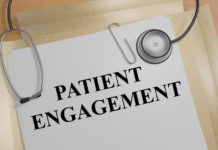Beyond Mobile Medical App Guidance What to Worry About After FDA Publishes Its “Final” GuidelinesClick Here for Additional Resources
 A conversation with Bradley Merrill Thompson, Member of the Firm at Epstein Becker & Green and General Counsel to the mHealth Regulatory Coalition (see Bio). We discuss prospects for FDA’s final guidance on regulation of mobile medical apps (MMAs) and other regulatory issues that the mobile health community and FDA will need to face after publication of the “final” guidelines.
A conversation with Bradley Merrill Thompson, Member of the Firm at Epstein Becker & Green and General Counsel to the mHealth Regulatory Coalition (see Bio). We discuss prospects for FDA’s final guidance on regulation of mobile medical apps (MMAs) and other regulatory issues that the mobile health community and FDA will need to face after publication of the “final” guidelines.
Aired LIVE on:
Monday, April 1, 2013
You can visit this Pharma Marketing Talk Segment Page and listen to the live show or the archived audio podcast afterward. This show and ALL Pharma Marketing Talk shows are available as podcasts via PMT on iTunes (FREE!).
BackgroundThe following is abstracted from March 19, 2013, testimony of Bradley Merrill Thompson before the House Energy and Commerce Committee Subcommittee on Communications and Technology. Find the full version here.
Mobile health technologies are quickly changing the way we manage our health, and the way healthcare is delivered. The development and adoption of these technologies has been so swift that thousands of mobile health apps are already on the market, and include everything from calorie counters to more complex apps that perform diagnostic or critical clinical functions. Indeed, many simply replace traditional medical devices, for example allowing doctors to view ultrasound images.
Many mobile apps, however, present essentially no risk to the patient, and therefore should not be regulated. For example, apps allow users to actively monitor and trend their exercise activity on a daily basis, as a way to maintain or improve their overall condition. Apps also enable users to monitor their sleeping cycle, helping users understand their sleeping patterns. These types of apps allow consumers to be much more actively engaged in managing their health and wellness than even just a few years ago. Regulation should be commensurate to the risk the apps pose to the patients. Overregulating these apps negatively impacts manufacturers and developers who have to comply with requirements that are disproportionate to the very low risk level of these products.
Other mobile apps such as apps that function as an electrocardiogram device, or apps intended to diagnose skin cancer present a risk to the patient, and therefore ought to be regulated.
We appreciate FDA’s efforts in preparing the Draft Mobile Medical Apps Guidance in July 2011. The guidance was helpful in explaining the scope of federal regulation.
Now we need final guidance on mobile medical apps to assure innovative products get to market so that healthcare professionals, patients and consumers all have access to needed tools to manage their health. A final guidance would provide the regulatory predictability necessary for investors to support, and manufacturers to develop, important new products.
There are all sorts of companies out there trying to do this kind of stuff right. They follow the rules, and that costs money. At the end of the day, these rules are there for a reason. People get hurt when medical devices do not possess the quality they need to reliably perform their functions.
For a regulated industry, one of the worst things that can happen is a law on the books that is not enforced. That puts every ethical company in a dilemma — do you sink to the level of your competition that seems to be getting away with flouting the laws, or do you stick to your ethical guns.
To enforce these laws, FDA has the burden to develop evidence of a violation, which may be especially complicated and expensive when the developers are located overseas. FDA is going to need to develop an enforcement process that is fair, efficient and effective. On the one hand, I would hate to have that responsibility myself, because fairness costs money and that is in short supply. But on the other hand, I hate to see these ethical companies struggling mightily while trying to do the right thing. There must be a better way.
FDA has the longstanding expertise to protect the public health and to balance regulation with permitting innovation. In “mobile health” there is the term “mobile” but there is also “health,” and FDA has been successfully protecting public health through regulating devices for more than 40 years.
We certainly agree we are entering a novel phase in health product development. As such, the MRC believes that an office within FDA dedicated to mobile and wireless health technologies could focus on balancing public health interests and safety, and innovation.
This obviously does not mean we favor more regulation, but that we need a clearer and more transparent regulatory framework.
FDA should coordinate work with other agencies such as FCC, ONC, and the Federal Trade Commission (FTC) to build a clearer and more predictable regulatory environment for these medical devices. Those agencies all have a certain expertise regarding wireless health technology and the healthcare sector will benefit from these agencies sharing their expertise with FDA.
Moreover, FDA already has sufficient statutory powers such as requiring registration and adverse events reporting, just to name a few, that will protect patient safety. It is unclear how a new agency would enhance patient safety with regard to these mobile apps over what FDA does already. Nor is it clear how another agency would do any better at allowing innovation to flourish.
We fear the added complexity and jurisdictional confusion likely following the creation of a new agency will cause the U.S. patients to see novel medical devices well after the rest of the world. FDA has been actively working collaboratively with the MRC and industry more generally to improve the regulatory landscape. The existing statutory framework gives FDA the flexibility it needs to further adapt the regulatory scheme to this novel form of technology.
Mobile technologies are changing the fundamental behaviors of patients and consumers to make them more engaged in their health. Mobile technologies are also changing the way healthcare providers offer care to their patients. This new model of healthcare has its challenges – innovative developers are creating more sophisticated products, and the regulatory framework will need to be flexible in order to leave room for future developments. FDA has the resources and expertise to address these challenges.
Questions/Topics Discussed- When do you expect the FDA to release final guidance on regulation of MMAs? On what do you base your estimate? Once the “final” guidance is published how can it keep up with rapidly developing mobile technology? Won’t the guidance be out of date virtually as soon as it is published?
- Congress held hearings on FDA’s regulation of health apps. Why all the high-level scrutiny? Do you think Congress will pass new laws limiting FDA’s ability to regulate health apps?
- Politicians and policymakers are moving forward with input from only a narrow group of special interests. What about other stakeholders such as patients, physicians, and app developers? How do they get involved in the process?
- FDA says it has the technical skill necessary to regulate software apps. Do you believe that is true? How is the regulation of software-based “medical devices” unique? Is FDA’s quality assurance system applicable to how health apps are developed?
- Are health app developers aware that their apps may require FDA regulation? Are they ready to become compliant with applicable regulations?
- What enforcement challenges does the FDA face and what is the impact of those challenges on innovation in this space?
- What about apps produced by pharmaceutical companies? How are they different from other health apps and what implications does that have for FDA regulation?
Guest Bio
 Bradley Merrill Thompson is a member of the Firm at Epstein Becker & Green, P.C. There, he counsels medical device, drug, and combination product companies on a wide range of FDA regulatory, reimbursement, and clinical trial issues. At the firm, Mr. Thompson leads the Medical Device Regulatory Practice, the Clinical Trials Initiative, and the Connected Health Initiative, and he serves on the firm’s National Health Care and Life Sciences Steering Committee.
Bradley Merrill Thompson is a member of the Firm at Epstein Becker & Green, P.C. There, he counsels medical device, drug, and combination product companies on a wide range of FDA regulatory, reimbursement, and clinical trial issues. At the firm, Mr. Thompson leads the Medical Device Regulatory Practice, the Clinical Trials Initiative, and the Connected Health Initiative, and he serves on the firm’s National Health Care and Life Sciences Steering Committee.
For trade associations, Mr. Thompson has served as counsel to AdvaMed for payment issues; as General Counsel to the Combination Products Coalition, the mHealth Regulatory Coalition, and the CDS Coalition (focusing on clinical decision support software); and for 17 years, as General Counsel and Secretary for the Indiana Medical Device Manufacturers Council (the “IMDMC”).
Additional Resources









![6 Digital Tools at the Center of Healthcare Digitalization [INFOGRAPHIC]](http://ec2-54-175-84-28.compute-1.amazonaws.com/pharma-mkting.com/wp-content/uploads/2021/04/6DigitalTools_600px-100x70.jpg)




